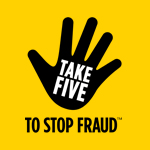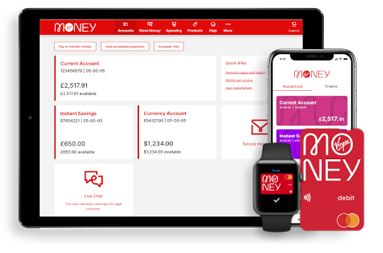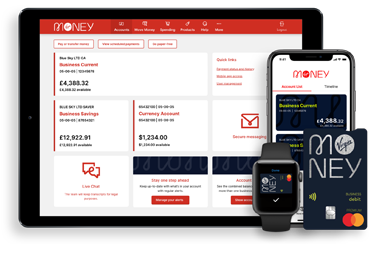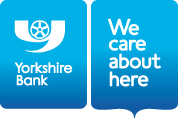-
Login
More Login links
Internet Banking
Business Internet Banking
Started an application?
Other services
Help
-
Register
More Register links
Internet Banking
Business Internet Banking
Other Services
- Ways of banking More ways of banking links
Internet banking
Mobile banking
Telephone banking
Branches, ATMs and Post Offices
Useful information
Easy-peasy payments
Just a fingertip away with Apple Pay
Tap, pay, go.
Google Pay is here
- Current accounts More current account links
Our current accounts
Choosing an account
Managing your account
Our bank accounts
Find out more and compare our range of accounts
Your application
Log in to complete your online application and get your online decision
Need Help?
- Current account help
- Help and support home
- Credit cards More credit card links
Benefits of a credit card
Useful information
Need Help?
- Credit card help
- Help and support home
- Savings More savings links
- Loans More loan links
- Mortgages More mortgage links
- Insurance More insurance links

How you can protect yourself from fraud
Take 5 to stop fraud
Criminals use a wide range of methods to commit fraud and scams so to keep yourself safe follow these five rules –
- Never disclose security details, such as your PIN, full banking password or one time pass code to anyone even bank staff.
- Don't assume an email, text or phone call is authentic
- Don't be rushed – a genuine organisation won't mind waiting
- Listen to your instincts – you know if something doesn't feel right
- Stay in control – don't panic and make a decision you'll regret
Follow the simple rules of –
Stop – Taking a moment to stop and think before parting with your money or information could keep you safe.
Challenge - Could it be fake? It’s ok to reject, refuse or ignore any requests. Only criminals will try to rush or panic you.
Protect - Contact your bank immediately if you think you’ve fallen for a scam and report it to Action Fraud.
Take five to stop fraud.Have you been affected by fraud?
0800 085 2914 Calling from abroad +44 113 234 4879
Monday to Friday 8am - 7pm Saturday 8am - 5pm
How to spot fraud
Knowing how to spot the latest fraud types helps you to keep your money safe.
What types of fraud are there?
Application fraud
Application fraud is when fraudsters open an account using fake or stolen documents in someone else’s name. The account could be anything from a phone contract or credit card account to a loan or a mortgage. It happens when identity theft has occurred.
ATM fraud
ATM fraud is an illegal transaction that is committed by using an ATM, including fraudulent deposits or skimming card information.
Card fraud
Card fraud involves the compromise of any personal information from credit, debit or store cards. The personal information stolen from a card, or the theft of a card itself, can be used to commit fraud. Fraudsters might use the information to purchase goods in your name or obtain unauthorised funds from an account. Plastic card fraud can also include ‘card not present’ fraud, such as the use of a card online, over the phone or by mail order, and counterfeit card fraud.
Cheque fraud
Types of cheque fraud include counterfeiting, forgery and fraudulently altered cheques. Counterfeit cheques are manufactured or printed on non-bank paper to look exactly like genuine cheques. A forged cheque is a genuine cheque that has been stolen from a customer and used by a fraudster with a forged signature. A fraudulently altered cheque is a genuine cheque that has been made out by the genuine customer, but a fraudster has altered the cheque in some way before it is paid in e.g. by altering the beneficiary's name.
Identity fraud
Identity fraud is the use of stolen identity in criminal activity to obtain goods or services by deception. Fraudsters can use your identity details to open bank accounts, obtain credit cards, loans and benefits, order goods in your name and take over your existing accounts.
Mobile fraud
Mobile fraud is similar in nature to other types of online fraud. Fraudsters try to obtain information through various means on your mobile device (tablets, smartphones etc.) to access your personal and account information.
Online malware fraud
Malware is malicious software that consists of programming, for example code or scripts, designed to disrupt the performance of PCs, laptops, handheld devices etc. Malware can also collect information or data from infected devices and pass them on to another device. Malware is often referred to as viruses, worms, trojan horses, spyware, dishonest adware, scareware and crimeware.
Payment fraud
Payment fraud is any fraud that involves falsely creating or diverting payments and includes intercepting and altering payee details and amounts on cheques and payable orders, creating false payment and financial information to support fraudulent claims and self-authorising payments to oneself.
Phishing
Phishing is a method used by fraudsters to access valuable personal details, such as usernames and passwords, typically by email. Phishing can also involve sending malicious attachments or website links in an effort to infect computers or mobile devices.
Smishing
Smishing is when fraudsters obtain personal details of a victim by SMS text messages. Fraudsters can go on to use this personal information to commit fraud.
Telephone fraud (vishing)
Vishing is when fraudsters obtain personal details of a victim by phone. Fraudsters can go on to use this personal information to commit fraud.
Protecting yourself online
Find out about how to bank safely online and protect your personal information.
How do I protect myself on internet banking?
- Keep your PC or device secure by, having the latest operating system, firewall and anti-virus software which helps protect against financial malware.
- Use our mobile app for two-factor authentication.
- Never disclose your security details or provide a token 3 response to anyone either in person, by email or by text. The Bank or any other legitimate service will never ask for a token 3 response from you. (This is where you press 3 on your token keypad to generate a code which enables payments to be made in your internet banking).
- Don’t use obvious passwords, like your date of birth, telephone number, address, your name or the name of a friend or relative. You should not use your internet banking passwords for any other purpose such as email or social media.
- Don’t access internet banking from computers situated in public places as the internet connection may not be secure.
How do I protect myself online with two-factor authentication?
If you are registered for internet banking, from time to time we will carry out security checks to ensure your account is secure.
One of the ways we will do this is through our mobile banking app. When carrying out certain transactions on our internet banking site you will be prompted to log in to your mobile app and authorise your payment, after ensuring all the details supplied are correct. After you authorise the payment through the mobile app, we’ll carry out some checks before the payment status is confirmed.
For additional support on the use of your mobile banking app with the internet banking platform visit the help centre.
How do I protect myself using mobile banking?
- Protect your device and your mobile app with a passcode and make sure you lock and unlock your mobile device. Always remember to logout of the mobile app when not in use. It’s important you do not write your security information down, store it on your device or disclose it to others. Avoid sharing the device you bank on.
- Don’t disclose your security details to any other person, including in response to a request (even if that request appears to come from us).
- Check your account records carefully and regularly.
- Use official stores: our mobile app is only available from official stores such as Apple App Store and Google Play™.
- Update your mobile app: install the new updates to make sure your device isn’t exposed to the latest risks. If your mobile device is compatible with anti-virus software, it’s a good idea to download one from a reputable brand.
- Email and SMS: remember we will never ask you for your security information via SMS or email.
- Notify us as soon as possible: if your security details become known to another person (or you suspect they have become known); you notice any errors or unauthorised transactions on your account; you think someone else has or may try to access your account; you become aware that your mobile device, or the computer that you sync your mobile device to has been lost, stolen or fraudulently accessed.
How do I protect myself on social media?
- Be aware of privacy settings on your social media accounts, you may unwittingly be giving a fraudster personal details such as address, date of birth and telephone numbers.
- Never disclose your personal financial information such as sort code, account number, PINs and internet banking login credentials, either publicly or on direct messaging services.
- Remember, fraudsters will use the anonymity of social media to their advantage. You may not be speaking to the person you think you are. Even established contacts can be compromised by a fraudster to persuade you to divulge information.
Protecting your cards
Find out about how to keep your cards and PIN safe and register for services to shop safely online.
How do I keep my cards safe?
- Never let your card out of your sight when making a transaction.
- Never give your card to anyone else, including people that come to your home to collect it. We will never send a representative of the bank to collect a card from you.
- Shop at secure online stores where data is encrypted. A padlock or unbroken key symbol should appear in your browser to identify the secure websites. It’s also important to shop online from only yours or trusted personal computers and devices.
- If you lose your card, report it immediately to us.
- If you have any concerns over how an ATM, or card machine looks, don’t use it. If you are worried about any suspicious people standing close by to an ATM you want to use, try another ATM instead.
- Check your statements regularly for any transactions you may not recognise.
- Shred all confidential documents before discarding them.
How do I keep the PIN for my card safe?
- Never write down your PIN, passwords and other security details.
- Never disclose your PIN, password and other security details to anyone, including people claiming to be bank staff.
- When entering your PIN at the cash machine or store, always shield your PIN from others.
- Don’t use PIN numbers that are easy to guess, such as all the same number or sequential numbers.
- If you think someone may have seen your PIN, change it at the next available opportunity.
Card protection with Mastercard® Identity Check™
In association with MasterCard and Visa, we protect your cards against unauthorised use when you shop online at participating retailers by assessing whether additional security information is needed to verify your purchase. In most cases, no further verification is required but, in certain circumstances, we’ll ask for some additional security information.
We provide you with full details on the secure online shopping section of our website.
Protecting your business
Find out how to protect your business from all the latest types of fraud and where to learn more.
How do I keep my business safe?
Key guidance and best practices for keeping your business safe include:-
- Regularly check your bank accounts and Companies House records for irregularities.
- Reconcile bank statements and company credit card statements regularly.
- Train your staff on potential fraud ‘red flags’ and encourage employees, customers, suppliers and business partners to report anything unusual.
- Be aware of registration of new domains that are similar to yours. Consider registering common misspellings and variations of your company name.
- Shred all confidential documents and sensitive papers before disposal.
- Set guidelines and processes for those who can place orders on behalf of the company.
- Take up references for and consider vetting new employees and contractors.
- Respond to payment card chargeback requests promptly.
- Set strict credit limits and review regularly.
- For unknown customers with no transaction history, insist on cleared payment being received before goods or services are supplied.
- Perform credit checks on new customers, suppliers and partners, and check their contact details for authenticity.
- If selling online, validate new customers using verification such as Address Verification Service or Mastercard Identity Check.
- File your company secretarial records using the Companies House WebFiling system to reduce the threat of identity theft of your company name or directors.
Please visit the dedicated business fraud and security information provided on the industry leading Get Safe Online (opens in a new window) website to learn more.
More information
Find out more about protecting yourself and the leading industry websites to find out more.
What is expected of me?
When you use our banking services, in the unlikely event that a fraudster takes money from your account, we will refund the money back to you (including any interest and charges incurred) unless you have deliberately, or through negligence, failed to keep your card, PIN, security details and banking devices safe.
Our online and mobile fraud promise
We want you to feel safe when banking online with us, so our promise to you is if funds are taken from your account fraudulently, we will reimburse the loss, as long as;
-
You have taken reasonable care to protect your online information. This may include;
- - Ensuring you properly log off internet banking or mobile banking when you’re finished,
- - Taking care to ensure others can’t see your security information when logging in to internet banking.
-
You have not disclosed your security details. These include;
- - passwords, passcodes, security answers and token responses.
- You have not acted fraudulently.
You can learn more about safe banking and protecting yourself from the following industry leading websites:
The UK fraud prevention service CIFAS (opens in a new window) also provides industry leading guidance on how you can protect yourself from identity fraud and identity theft, including how to register for the CIFAS Protective Registration service which offers an additional layer of protection against identity fraud to companies and individuals.
Additional help
Financial fraud action
FFA UK is responsible for leading the collective fight against financial fraud on behalf of the UK payments industry.
Cyber streetwise
A UK Government campaign offering a variety of tips and advice on the essentials for enjoying a safe online experience.
Met police
The Metropolitan police fraud team provide information as a resource to assist in combatting fraud and to prevent you becoming a victim of crime.
Branch locator
Find your nearest Yorkshire Bank branch, Business and Private Banking centre or ATM
Contact us
If you have any concerns about fraudulent activity, please give us a call on:
- Monday to Friday 8am - 9pm Saturday 8am - 9pm Sunday 10am - 5pm
- Please note all our calls to our lines are recorded for training and security purposes.
Internet Banking help centre
You can find more information about Internet Banking in our help centre
You are here: Personal Banking > Ways of banking > Help and support > Security > How you can protect yourself
- About Yorkshire Bank
- About us
- Virgin Money UK PLC
- Media relations
- Careers

Internet Banking has moved
To log into Internet Banking you now need to use Virgin Money Internet Banking. You'll get the same great service and are able to access all your accounts.
Your log in details will stay the same and you can log in directly from the shiny new Virgin Money website.
Continue to Virgin Money Internet Banking
Go to the Virgin Money website
Be Alert
Never tell anyone a token 3 response code, even someone from the bank. You should only input these codes to our secure Business Internet Banking service when you’re sending and making payments. If anyone calls and asks for a token 3 response code or asks you to authorise a payment on the App for fraud checks, hang up and call us on 0800 085 2914 from another line if possible, remember the Bank will never ask you to disclose your security details.
Continue to Virgin Money Business Internet BankingYou can find impartial information and guidance on money matters on the “MoneyHelper” website.
Yorkshire Bank is covered by the Financial Services Compensation Scheme (FSCS), Find out more. - Current accounts More current account links




